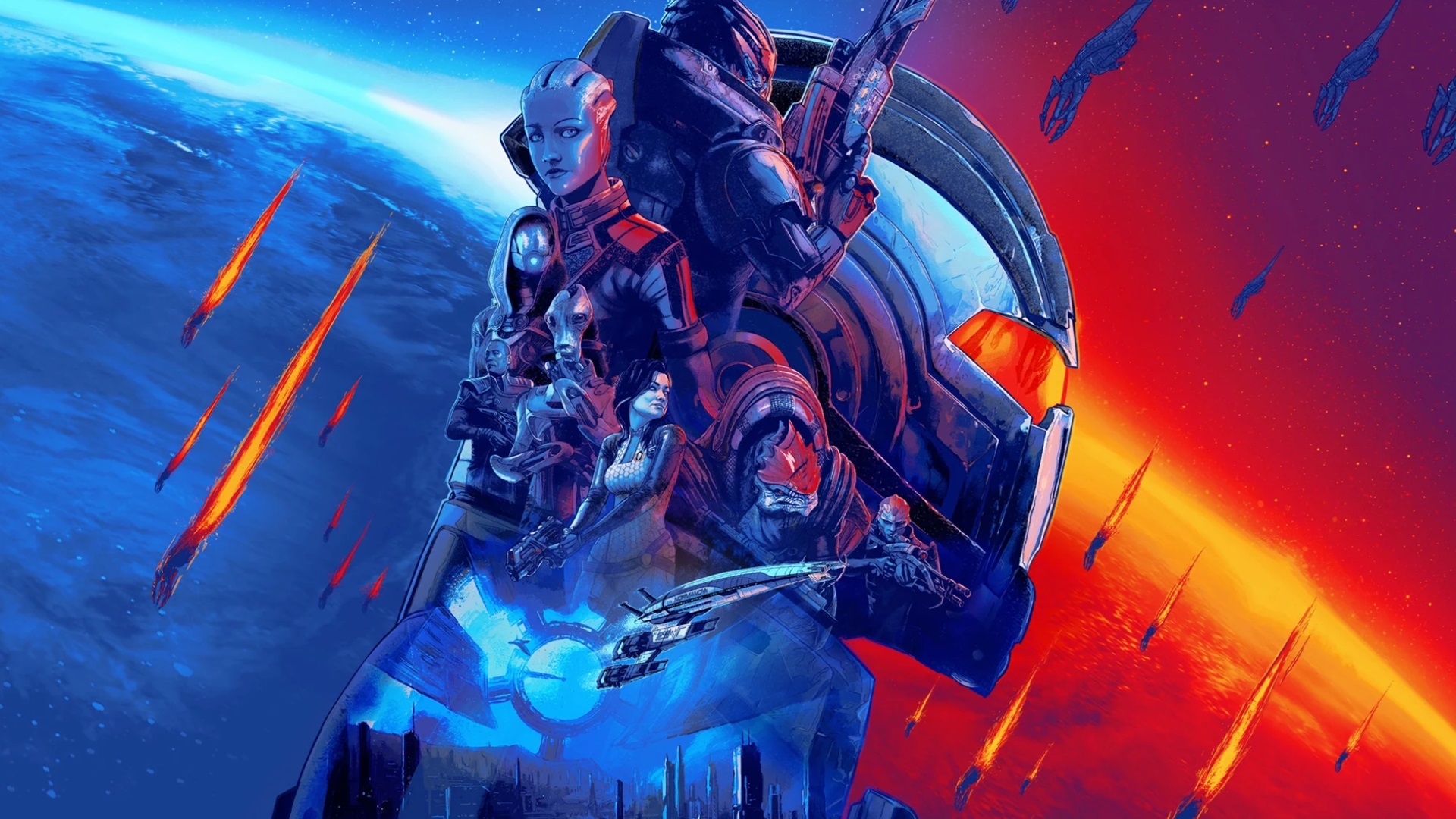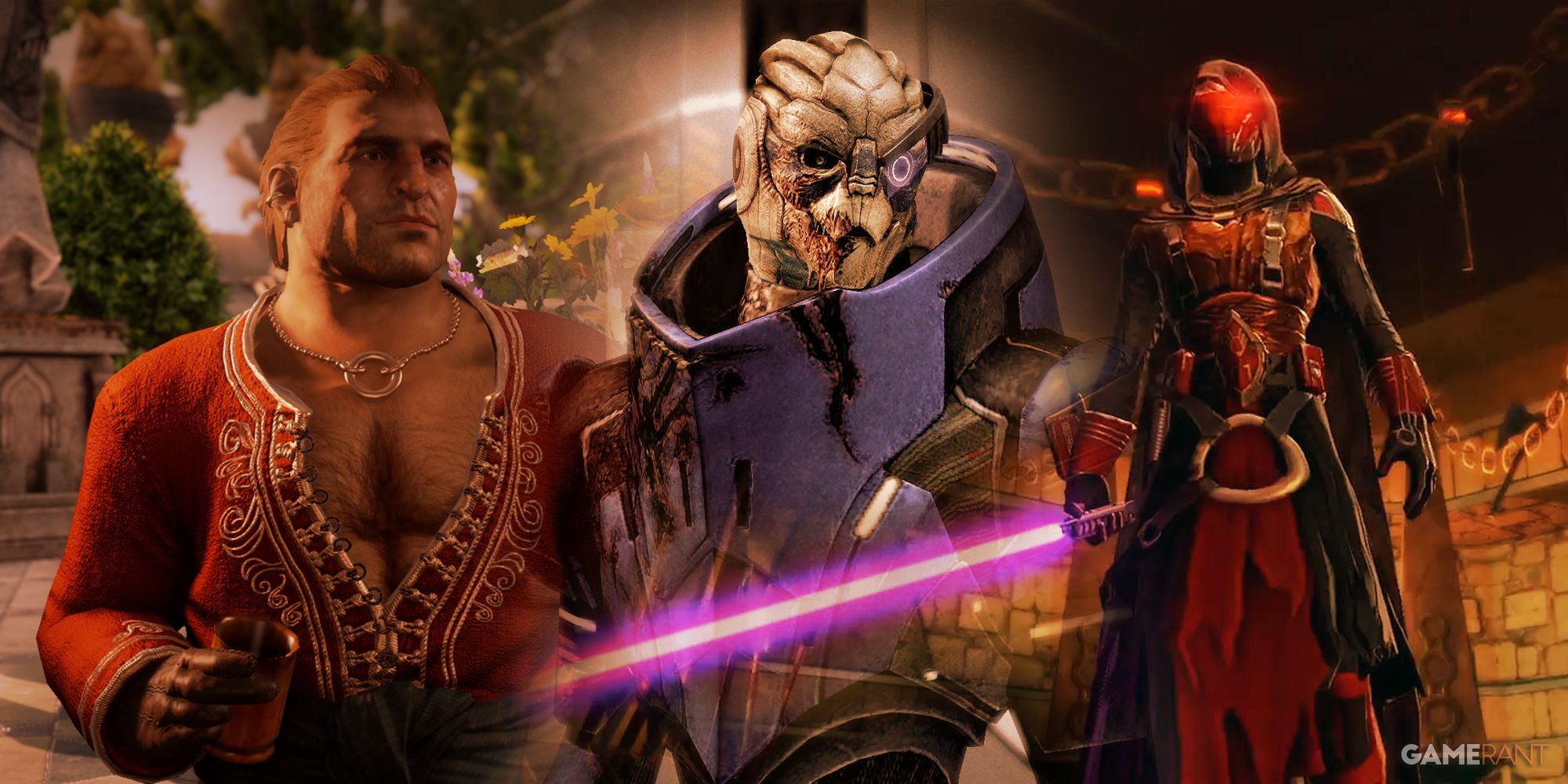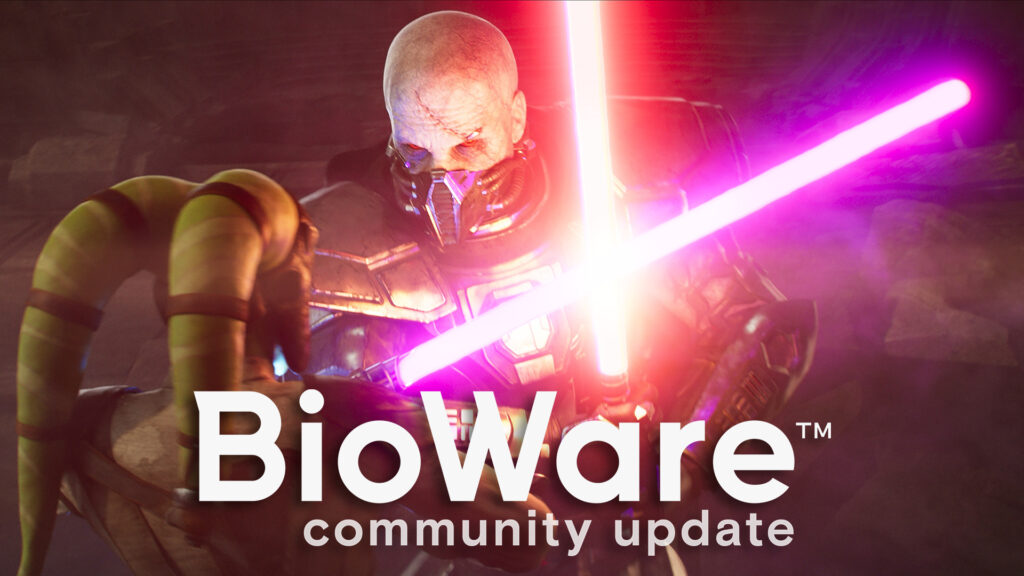So, you’ve probably heard of BioWare, right? Unless you’ve been living under a rock—or maybe hiding in the Normandy SR-1—you know this legendary studio has shaped the gaming world like no other. BioWare isn’t just another game developer; it’s a name that carries weight, a legacy that spans decades and countless unforgettable games. From their early text-based adventures to the jaw-dropping cinematic epics we see today, BioWare has consistently pushed boundaries and redefined storytelling in gaming. But how did they get here? And what’s next for this powerhouse studio? Stick around, because we’re diving deep into the journey of BioWare.
Now, let me tell you something: BioWare didn’t just wake up one day and become the titan it is today. This journey has been filled with highs and lows, triumphs and challenges, and more twists than Mass Effect’s plotline. The studio has always been about creating immersive worlds where players can truly lose themselves, and that’s what makes them so special. Their games aren’t just games—they’re experiences, stories that stay with you long after the credits roll.
Before we dive into the meat of this story, let’s lay the groundwork. BioWare is more than just a gaming studio; it’s a symbol of innovation, creativity, and passion. Their work has influenced countless developers and inspired millions of gamers worldwide. If you’re a fan of RPGs, epic narratives, or just games that make you feel like you’re part of something bigger, then BioWare is your go-to. So buckle up, because we’re about to take a trip down memory lane—and maybe peek at what’s coming next.
The Genesis of BioWare
Back in the day, 1995 to be exact, two doctors named Ray Muzyka and Greg Zeschuk decided they were tired of saving lives and wanted to start creating worlds instead. Okay, maybe that’s a slight exaggeration, but these guys really did have medical backgrounds before diving headfirst into the world of gaming. BioWare started as a small team with big dreams, and their first project was a game called Shattered Steel. It wasn’t exactly a household name, but it laid the foundation for what was to come. This was the spark that ignited the BioWare fire.
Defining Moments in BioWare’s History
Fast forward a bit, and BioWare was already making waves. Baldur’s Gate, released in 1998, was a game-changer. It wasn’t just another RPG; it was a deep, rich experience that set a new standard for storytelling in gaming. Players could explore the Forgotten Realms, make choices that mattered, and truly immerse themselves in a vast, living world. This was the moment when people realized BioWare wasn’t messing around—they were here to innovate.
Dragon Age: Origins and the Dawn of a New Era
Skipping ahead to 2009, Dragon Age: Origins dropped like a bombshell. This game was everything fans had been waiting for: epic fantasy, deep lore, and choices that felt consequential. It wasn’t perfect, but it was a masterpiece in its own right. Dragon Age wasn’t just a game; it was an invitation to explore a world rich with history, magic, and intrigue. And let’s not forget the dialogue trees—oh, those glorious dialogue trees! They let players shape the story in ways that felt personal and impactful.
Mass Effect: The Galaxy’s Darkest Hours
But wait, there’s more. Mass Effect came onto the scene in 2007, and it was like nothing anyone had seen before. A sci-fi RPG with a living, breathing galaxy? Sign me up! The series followed Commander Shepard as they fought to save the galaxy from destruction. The characters were unforgettable, the dialogue was sharp, and the choices you made actually mattered. Mass Effect wasn’t just a game; it was a journey, and players became emotionally invested in its story like never before.
The Mass Effect Legacy
Mass Effect wasn’t just one game; it was a trilogy that redefined what an RPG could be. The second and third installments built on the foundation laid by the first, expanding the universe and deepening the story. By the time Mass Effect 3 rolled around, fans were fully invested in the fate of the galaxy—and let’s be honest, that ending sparked some serious debates. But that’s the beauty of BioWare’s storytelling: it makes you care, and sometimes it breaks your heart in the process.
BioWare’s Approach to Storytelling
So, what makes BioWare so good at storytelling? It’s not just about throwing a bunch of cool characters into a fancy world. BioWare games are crafted with care, attention to detail, and a deep understanding of what makes a story compelling. They focus on character development, moral dilemmas, and player agency. You’re not just watching a story unfold—you’re part of it. Every choice you make, every conversation you have, shapes the world around you. It’s this level of immersion that sets BioWare apart from the rest.
Key Elements of BioWare’s Storytelling
- Deep, rich lore that draws players into the world.
- Characters that feel real, with motivations and flaws that make them relatable.
- Choices that matter, with consequences that ripple through the story.
- Dialogue trees that give players control over how they interact with the world.
The Challenges BioWare Has Faced
No journey is without its bumps in the road, and BioWare’s hasn’t been any different. One of the biggest challenges they faced was the backlash over Mass Effect 3’s ending. Fans were furious, and BioWare had to release an extended cut to try and appease them. It was a tough lesson in how passionate their fanbase could be. But that’s not the only challenge they’ve faced. Over the years, there have been delays, controversies, and even studio shake-ups. Yet through it all, BioWare has continued to push forward, always striving to create the best games possible.
Lessons Learned from Setbacks
Setbacks are opportunities to grow, and BioWare has certainly taken that to heart. After the Mass Effect 3 ending controversy, they listened to their fans and made changes. They’ve also learned the importance of transparency and communication with their audience. It’s a delicate balance, but one they’ve managed to navigate with grace. And let’s not forget the importance of taking risks. Sometimes things don’t go as planned, but without risk, there’s no reward—and BioWare knows that better than anyone.
The Future of BioWare
So, what’s next for BioWare? The studio has teased several upcoming projects, including a new Dragon Age game and a Mass Effect sequel. Fans are buzzing with excitement, but they’re also cautious after the mixed reception of Anthem. BioWare knows they have a lot to prove, and they’re working hard to deliver the quality their fans expect. With new technologies and storytelling techniques on the horizon, the future looks bright for this iconic studio.
What Fans Can Expect
Fans can expect more of what they love: deep storytelling, rich worlds, and characters that feel like old friends. But they can also expect innovation. BioWare isn’t content to rest on their laurels; they’re always looking for ways to push the boundaries of what games can be. Whether it’s through new mechanics, improved graphics, or even virtual reality experiences, BioWare is committed to delivering the best possible gaming experiences.
BioWare’s Impact on the Gaming Industry
BioWare’s influence on the gaming industry cannot be overstated. They’ve set the bar for storytelling, character development, and player agency. Other studios have followed in their footsteps, trying to replicate their success. But BioWare isn’t just about influencing others—they’re about creating something unique, something that resonates with players on a personal level. Their impact is felt not just in the games they make, but in the way they inspire others to create.
Data and Statistics
Here are some interesting stats about BioWare’s impact:
- BioWare has sold over 40 million units worldwide.
- Mass Effect 3 was one of the best-selling games of 2012.
- Dragon Age: Inquisition received critical acclaim, with a Metacritic score of 91.
Why BioWare Matters
BioWare matters because they’ve shown that games can be more than just entertainment. They’ve proven that games can tell meaningful stories, explore complex themes, and leave a lasting impact on players. In a world where games are often dismissed as frivolous, BioWare has demonstrated their potential to be art. And that’s something worth celebrating.
A Call to Action
So, what can you do? If you’re a fan of BioWare, show your support. Share your favorite moments from their games, discuss the stories that moved you, and keep the conversation going. The gaming community is stronger when we come together to celebrate the studios that inspire us. And who knows? Maybe one day, you’ll be part of the next generation of storytellers, carrying the torch that BioWare has lit.
Conclusion
To sum it all up, BioWare is more than just a gaming studio—they’re a cultural phenomenon. From their humble beginnings to their current status as a gaming giant, they’ve consistently pushed the boundaries of what games can be. Their focus on storytelling, character development, and player agency has set a new standard for the industry. Yes, they’ve faced challenges along the way, but they’ve always emerged stronger, ready to take on whatever comes next.
So, whether you’re a long-time fan or just discovering BioWare for the first time, there’s no denying their impact on the gaming world. And with exciting new projects on the horizon, the future looks brighter than ever. Keep playing, keep exploring, and keep dreaming—because that’s what BioWare is all about.
Table of Contents


